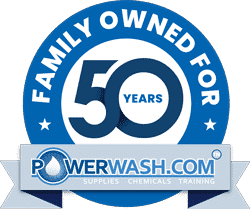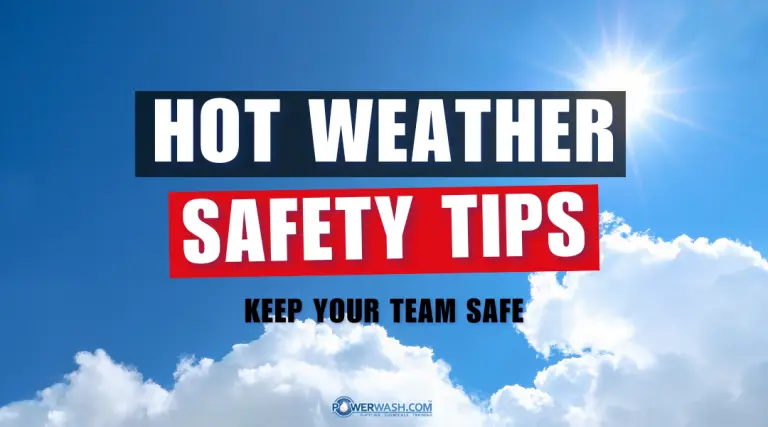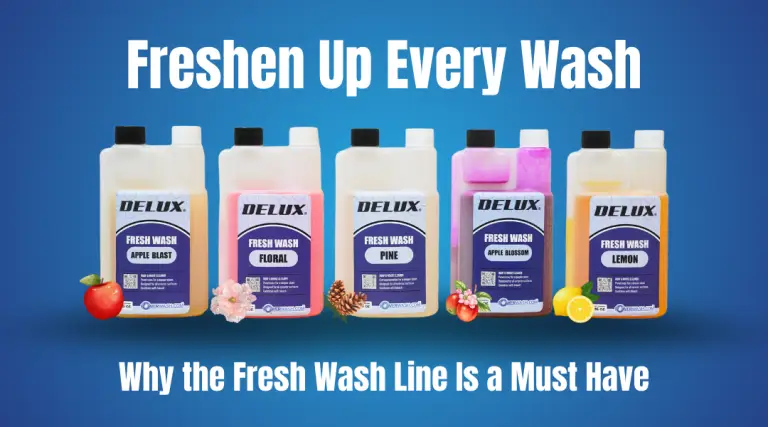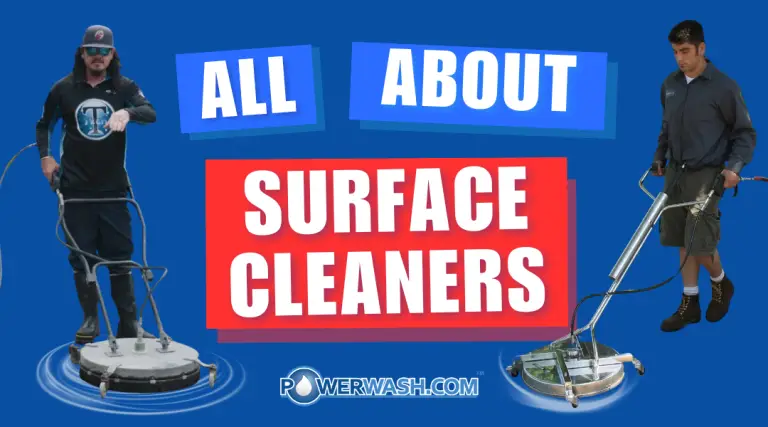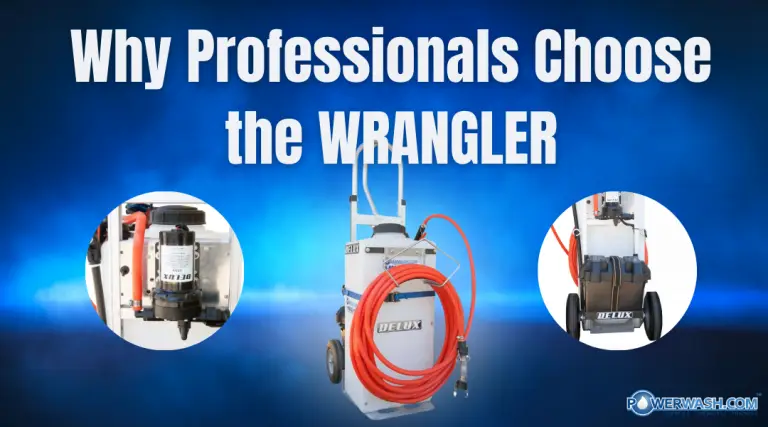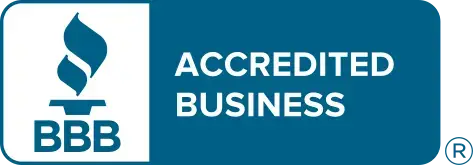- Home
- /
- Power Wash Spray Tips
- /
- Winter Pressure Washing Tips
Subscribe To Our Newsletter
Stay in the know on the latest products, deals, events, tips & tricks.
Social Media
Winter Pressure Washing Tips
If your pressure washing business is slowing down for the winter, you need to start looking for new sources of income. Fleet washing, kitchen exhaust cleaning, deck staining, window washing and flat work continue all year long. Pressure washing during the winter can present some special challenges. Here is our list of our top Winter pressure washing tips to help you avoid some rookie mistakes.
- In calm air hot water washing can be done to 15 to 25 degrees Fahrenheit. In blowing wind hot water washing can be done to about 34 degrees Fahrenheit. If possible wash in direct sunlight to take advantage of thermal heating.
- When you are trying to decide if it is safe to wash, you should consider the following:
- Is it safe to drive on the roads?
- Can you arrive at the job site safely and without the equipment freezing up?
- Will you have a safe surface to walk on? Will you be on a roof? Sidewalk? Ice or Snow? Scaffolding?
- Can your employees drive to work OK?
- Will the freezing of the waste wash water be a problem?
- Can the washing be done safely?
- What will other traffic be like and how skilled are other drivers? What are the chances of a traffic accident?
- On days you cannot wash do sales calls and equipment maintenance. Call PowerWash.com at 800-433-2113 and order spare parts. Plan ahead and save time.
- Chemicals work slower in cold weather. Plan on using more chemicals and extra dwell time for the chemicals to work.
- Do not let your chemicals freeze. Store in a dry, warm place. Liquid chemicals will usually separate upon freezing.
- Avoid washing in the shade. Direct sunlight heats up surface temperatures and makes them easier to clean.
- Start your washing activities later in the day after the sun has had time to warm items up.
- Use indoor fittings with garden hose hook up for the sinks when outside faucets are frozen.
- If at all possible never travel with your water tank half full. The surging of the water can push you out into an intersection or make you lose control under slippery conditions. Always check the brakes at the beginning of each day!
- Hair Dryers and Heat Guns are safer than torches when thawing things out.
- Consider supplementing your income with seasonal add on services.
- New construction cleanup
- Snow removal
- Chimney cleaning
- Carpet cleaning
- Yard work and maintenance cleanup
- Indoor painting
Winter Pressure Washing Tips for Flatwork
- If your wash water runs across sidewalks or driveways and freezes, salt or sand these areas down for safety. Calcium Chloride and Magnesium Chloride are also use for melting ice. However, these products leave an oily residue and present a “slip” hazard. Choose your de-icing chemical carefully. Dyes in some ice melting chemicals can stain shoes, side walks, door frames, or carpets.
- Keep your water supply hoses flowing with water. If your water hoses run across the cold ground, they will freeze in a few minutes in sub-zero temperatures.
Winter Pressure Washing Tips for Fleet Washing
- Be careful where you point your spray; door locks, brake drums, door jams, and steps will freeze after you spray water on them. If you use 180 degree to 200 degree Fahrenheit, hot water evaporation will help minimize the icing problem. Sometimes you can minimize the freezing by opening and closing doors and operating the locks. Also you can spray with WD-40 with the long red needle adapter into door locks and mechanisms. Put some WD-40 on a rag and wipe on the rubber weather seals of the doors.
- Sheathing Wax added to the rinse water like W-200 Spray Wax will help the water slide off faster, thus speeding the drying process, and reduce icing. Depending on the temperature a leaf blower may also help in blowing off the water to reduce icing. This also can increase the freezing rate if not used properly.
- Aluminum brightening and acid cleaning do not work well below 60 degrees Fahrenheit.
- When washing reefer trailer make sure the units are running, this will help minimize icing.
- When removing large chunks of ice from vehicles use your zero-degree nozzle to cut the ice into small sections. Then direct your spray to break off these smaller sections. This is faster than simply melting the ice. Caution: Beware of flying chunks of ice!
Winter Pressure Washing Tips for Kitchen Exhaust Cleaning
- When you have finished cleaning the exhaust system, have one person turn on the fan while a 2nd person sprays deicer on the fan. Then leave the fan on. This assures that the fan works and is not out of balance when the morning kitchen crew arrives. Also, the airflow will help drying.
- Use fall protection equipment when on roofs.
Winter Pressure Washing Tips for Window Washing
- Double pane windows freeze faster than single pane windows because single pane windows get heat from the inside; use warm water but not hot water because you may crack the window from thermal stress
- Help prevent freezing by adding 1/2 to 1 gallon of windshield washer fluid or methanol to a 5 gallon bucket of wash water.
Deck Sealing
- You need 12 to 24 hours of drying time above 50°F before sealing a deck. Use a moisture meter to be sure the deck is dry enough.
- Follow the manufacturer recommendations of your Deck Sealer you are using.
- Decks will be warmest from 11:00 am until 3:00 pm.
Share This Post
More To Explore
Beat the Heat: Summer Safety Tips for Power Washing Professionals
Protect Your Crew. Protect Your Equipment. Protect Your Business. When the summer sun blazes, pressure washing jobs don’t stop—but the ...
Soft Wash Additive That Smells Amazing? Meet Fresh Wash
Freshen Up Every Wash Soft washing is all about precision, power, and presentation — and nothing completes a job like ...
Mastering the Art of Pressure Washing: Key Insights on Surface Cleaners
For professionals in the pressure washing industry, a surface cleaner is an indispensable tool, particularly for those who specialize in ...
The Wrangler™ Chemical Sprayer: The Ultimate Tool for Professional Cleaning Applications
For commercial cleaners and pressure washing professionals, efficient chemical application is key to achieving the best results. The Wrangler™ Chemical ...
